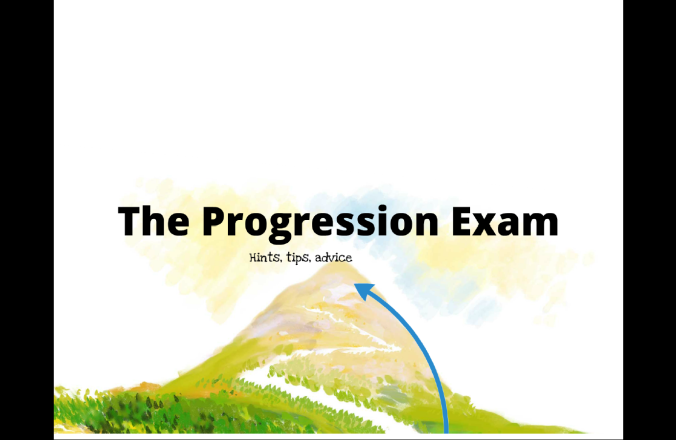The UWE Graduate School run a course aimed at staff new to supervising postgraduate research students entitled “Supervising Doctoral Students: Pedagogy & Practice”. The aim of this course is to encourage supervisors to think about a research degree in terms of a journey, to consider the support required by the doctoral student at various points along the way.
We set some pre-course reading for the participants to bring up the ideas around the different approaches there are to supervision; these were the references supplied:
- Lee, Anne (2008). How are doctoral students supervised? Concepts of doctoral research supervision,Studies in Higher Education (33(3) 267-281.
- Deuchar, Ross (2008) Facilitator, director or critical friend? Contradiction and congruence in doctoral supervision styles, Teaching in Higher Education 13(4): 489-500.
- Morrison-Saunders, A., Moore, S.A., Hughes, M. and Newsome, D. (2010) Coming to terms with research practice: riding the emotional rollercoaster of doctoral research studies, in M. Walker & P. Thomson (eds)The Routledge doctoral supervisor’s companion, London: Routledge.
- Stanley Edward Taylor, (2012),”Changes in doctoral education”, International Journal for Researcher Development, Vol. 3 Iss 2 pp. 118 – 138
http://dx.doi.org/10.1108/17597511311316973
The programme for the two day course is included here:
Introductions and challenging assumptions
We started by talking about what our own doctoral journeys entailed, was it a good/bad/indifferent experience and what role did our supervisor(s) play in helping to navigate that journey. Perhaps predictably, there were some pretty diverse tales from all- but with the same sort of message resonating. Our own experiences of being supervised are formative in how we then supervise others.
There was an interesting discussion regarding the framework of supervision picked out from Dr Anne Lee’s work on research supervision as being intriguing. A full explanation can be found here: http://epubs.surrey.ac.uk/484/1/fulltext.pdf
This led onto the discussions about how supervisors are chosen. Expertise & experience were two characteristics that leapt out but it was recognised that a great many other factors can and do influence the choice.
A discussion about the difference between the role of the Director of Study (DoS) and second/third/fourth supervisors was also had. These are quite clear in terms of the regulatory framework at UWE.
Policy context for postgraduate research study
We ended Day 1 with a look at the progression examination arrangements we have here at UWE. The slides I used to support this are the same ones I use to inform doctoral students and are reproduced here:
It was a discursive day and it was great to have two things from the supervisors there, 1) a genuine enthusiasm for supporting doctoral students and 2) a wealth of experience that they bring to the table.
Doctorateness
The second instalment of this course focussed on supporting doctoral students through the “middle years” (how do you maintain motivation?) and supporting students toward the finish. We began by talking about “doctorateness“, what is it, how do we define it and, probably more importantly, how do we encourage the development of it in others?
A good starting place was the Doctoral Descriptors, a set of criteria that research degrees are measured against by way of examination. The UWE descriptors are based on the Quality Assurance Agency (QAA) publication “Doctoral Degree Characteristics” (Sept 2011). Most universities will have equivalent descriptors somewhere in their regulatory framework. The UWE Doctoral Descriptor and the separate MPhil descriptor can be found in Section K3 of the academic regulations.
It is important for supervisors to try to help their students understand what it is that they are aiming for, some say you should try and set out the stall from day 1. A light hearted but illustrative example from Matt Might (Assistant Professor from the University of Utah) about what a PhD is helps us to get out heads around the problem…
The Illustrated Guide to the Ph.D.
The second element of doctorateness is to consider the philosophy element of the endeavour. Perhaps research students and their supervisors spend too much time on the written output, the doctoral thesis without necessarily considering the other and perhaps more original meaning of thesis – “a proposition stated or put forward, especially one to be discussed and proved or to be maintained against objections”.
Maintaining momentum
The topic of maintaining motivation was discussed. Inevitably the phenomenon known as the “Second Year Slump” (a general loss of motivation caused by a virtuous cycle of lack of progress/lack of belief in ability to make progress).
Matt Might has some advice on this:
3 Qualities of Successful Ph.D Students
The group considered, discussed and debated what might constitute good hints and tips for helping research students to keep moving in the right direction. Here are those:
Health and wellbeing
There is a growing concern about the increase in postgraduate researchers experiencing mental health problems during their doctorates and it is often the supervisor that is the first point of contact when help is sought. We brought in Diane Zimmer, the head of the UWE Wellbeing Service to highlight some of the support on offer.
The road to completion
The last session of the day was around the final leg of the journey, how to help research students complete. Here’s is the prezi I used to illustrate the logistics:
Finally, here is a collection of some relevant materials (clearly not exhaustive) on the topic of supervision.



Thanks for a very useful workshop Paul. Aside from preparing me for the supervision of doctoral candidates, the workshop also made me reflect on my own ongoing research and writing practice, and that academic development post-PhD is an ongoing process that still involves some of the issues first grappled with in postgraduate study.
LikeLike